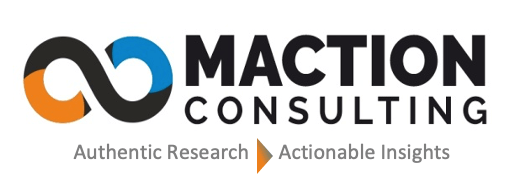Understanding your customers and competitors is crucial, and market research plays a vital role in achieving that understanding. By gathering information, market research can offer valuable insights that can guide your business planning and strategy.
To conduct an effective market survey, it’s essential to have a well-planned and organized approach that is objective and unbiased. However, it’s common for a market survey to be conducted during times of high emotion or disruption, which can lead to errors and oversights. To avoid these pitfalls, it’s important to be aware of common mistakes and learn strategies to prevent them.
Top 10 mistakes to avoid when conducting market research
1. Importance of Knowing the Research Questions before Conducting Market Research
To conduct successful market research, it’s essential to understand the questions you need answers to before you begin gathering data. Simply looking for general information to discover something useful can lead to a futile and unproductive research process.
While it may be easy to find data that is loosely related to your industry or business, without a specific research goal in mind, the information collected may not be relevant or useful. Therefore, having a clear understanding of the research questions beforehand is crucial to achieving valuable insights and effective decision-making.
2. Importance of Researching the Correct Target Demographic for Effective Market Research
To ensure that the data gathered through market research is useful, it’s crucial to identify the correct target demographic. Understanding your target demographic can provide valuable insights into their specific needs and preferences, which can help guide business strategies and decision-making.
By researching the target demographic, businesses can gain a deeper understanding of their customers and tailor their products or services to meet their specific demands. Therefore, researching the correct group is essential in conducting effective market research that yields actionable insights.
3. The Pitfalls of Depending on a Single Set of Data in Market Research
One of the most significant mistakes that market researchers can make is relying solely on one set of data. For instance, analyzing the behaviors and habits of a particular state based on research data from only a few select cities may not accurately represent the entire state’s population. Depending on a single set of data can lead to biased or incomplete insights and limit the understanding of the broader market. To ensure that market research is comprehensive and reliable, gathering data from multiple sources and perspectives is essential.
4. The Importance of Clear and Concise Objectives in Market Research
Without clearly defined objectives, confusion and complexity can arise, leading to misunderstandings and perceived failures at the end of the research process. To ensure that market research is successful, it’s essential to establish clear and concise objectives that outline the aims of the project and the type of knowledge and understanding that is sought.
Objectives should not be vague or ambiguous; instead, they should define the purpose and reason for the research. Before outlining the objectives, it’s important to provide background information on the project and explain why it is being conducted, what the business plans to do with the results, and how decisions will be made based on the research findings.
5. The Importance of Effective Moderation in Qualitative Market Research
Qualitative market research requires a delicate balance of open but not invasive questioning, or else there is a risk of stifling discussion. Overwhelming participants with too many quick-fire short questions can shut them down before they have a chance to open up. Effective moderation involves practicing active listening, confirming and reassuring the moderator understands the participant’s point before asking follow-up questions.
It’s crucial to frame questions in language that participants understand and to follow their areas of interest as much as possible. The best moderators may deviate from the original structure of the discussion to allow for an organic evolution of the conversation, guiding it back on track if it strays too far from the topic.
6. Issues Arising from Ineffective Participant Communication in Market Research
Effective communication with research participants is essential for the success of a study. However, researchers often prioritize crafting questions and conducting analysis over effective communication. Poor communication can lead to low response rates and negatively impact the quality of data collected. Therefore, researchers should ensure that their invitations and reminders are clear, friendly, and relatable. In qualitative research, personalized communication can help engage participants better. Automated reminders should be avoided, as they may come across as impersonal and reduce engagement. Effective communication with participants is crucial for the success of any research project.
7. Shallow reporting
Ensure your reporting is clear and specific by providing evidence to support your findings. Use concise language and avoid using vague terms such as ‘some,’ ‘might,’ and ‘may’. ‘It’s important to be precise about who your findings relate to, what they mean, and what actions can be taken. Overstating your findings can lead to a vague report. Avoid generalizing customer segments or stereotyping behaviors. Avoid associating behaviors with every one of the same age or geography. Lastly, avoid making sweeping recommendations that go beyond your scope of research.
8. Skipping competitor analysis
Although your product may have unique features, it is important to acknowledge that similar products in the market are highly successful. Neglecting to research your competitors’ products, including what sets them apart and their pricing strategies, is a common mistake. To gain a competitive advantage, it is crucial to thoroughly understand your competitors’ business practices and incorporate this knowledge into your market research.
9. Ambiguous questions
If your question is vague, biased, or lacks precision, your analysis may be open to interpretation, and the organization may reject your findings. In the worst-case scenario, this data can lead to incorrect decisions.
Ambiguity can be found in the answer choices, as it is easy to miss critical options that respondents may think of. This can skew the results and create confusion. Therefore, ensuring that the wording of the answer choices is unambiguous and doesn’t overlap may lead to confusion among respondents.
10. Limiting technological involvement
Despite customers spending a significant portion of their time on the internet and mobile devices, market research agency are still lagging in this area. If we want to engage customers and make research more convenient and interesting for them, we need to communicate with them in this space. However, most online research is currently limited to collecting surveys and structured questionnaires. We have the potential and means to do so much more online to make it more engaging while also gathering greater insight. The primary error we make online is relying on questionnaires that function more like surveys.
Conclusion
Here are some suggestions that can assist you in conducting research with minimal errors. Keep in mind that quality cannot be compromised! A single error might lead to failure. Suppose you’re having difficulty conducting research or have unanswered questions due to a lack of in-depth knowledge. In that case, it’s recommended that you seek out a professional market research agency that can better understand your market and customers. Maction Consulting can help you with the same.







